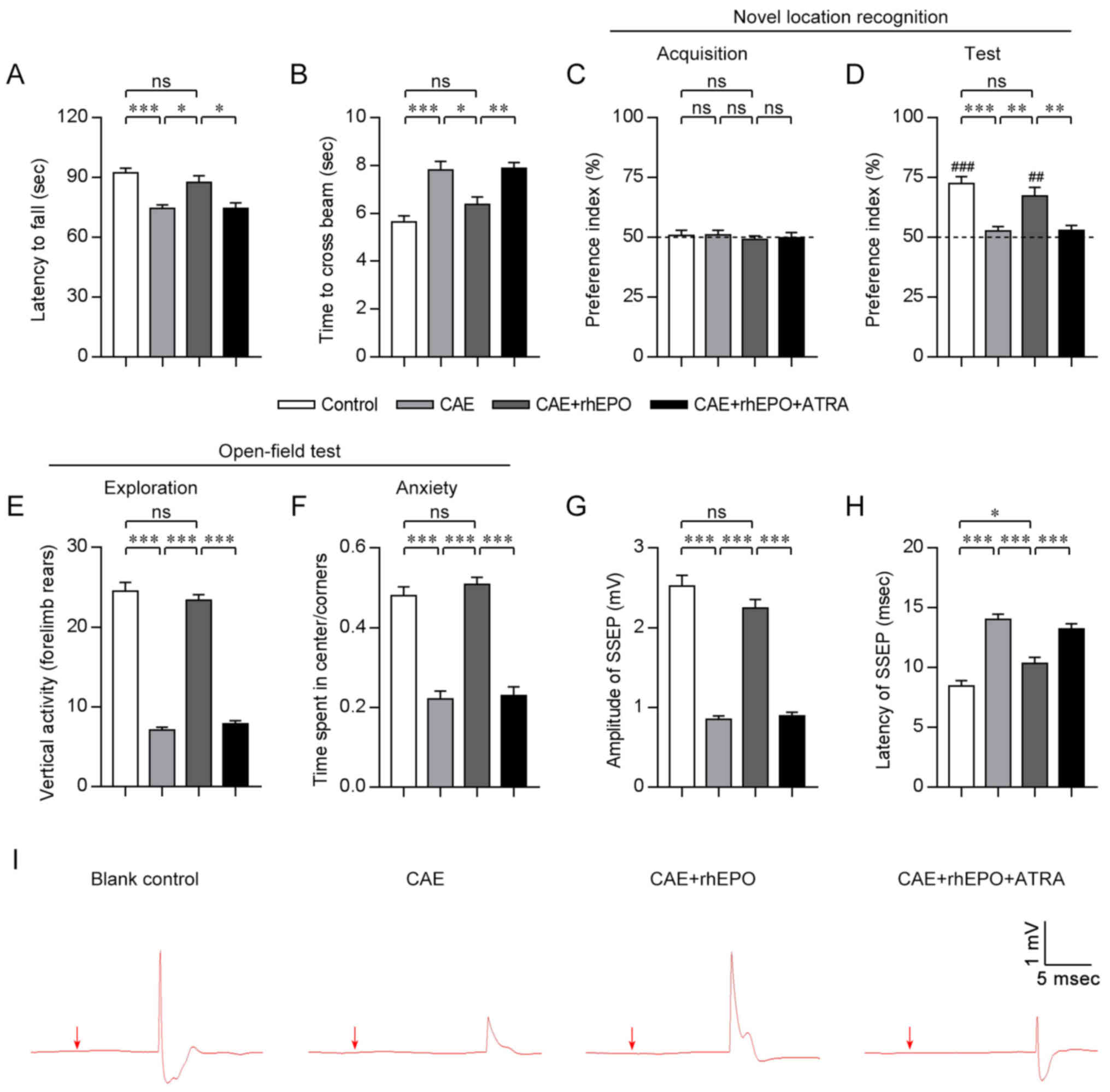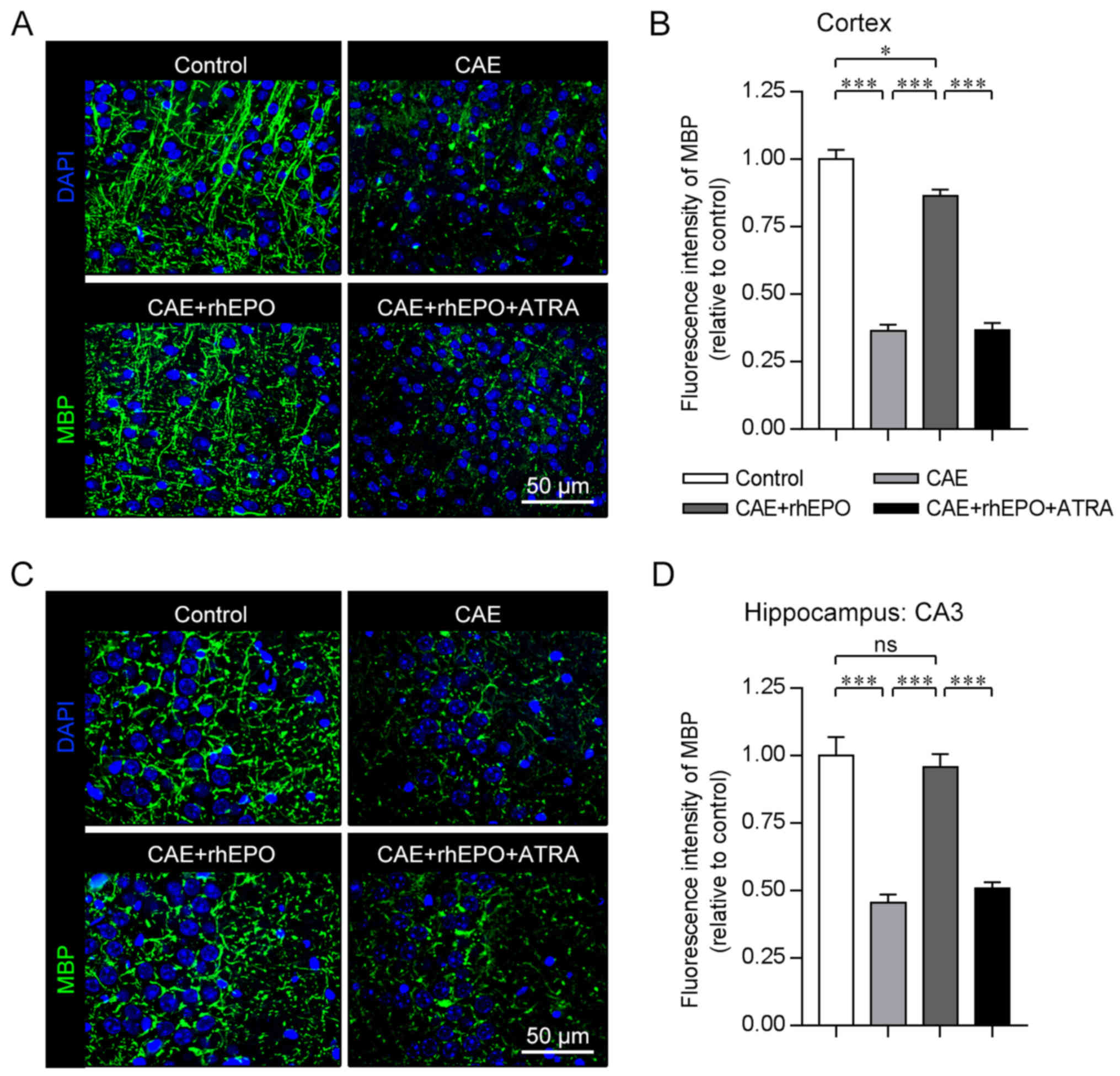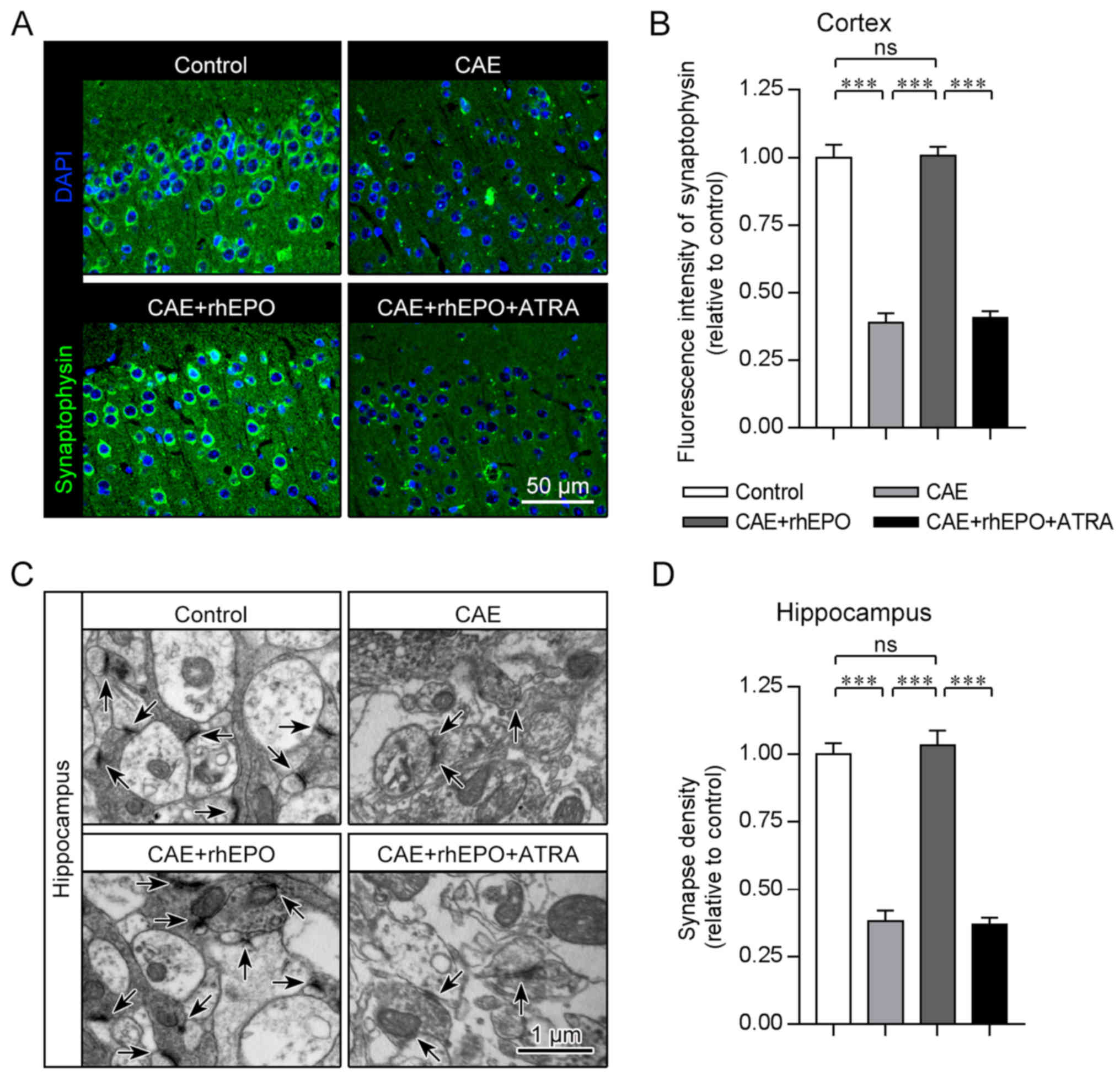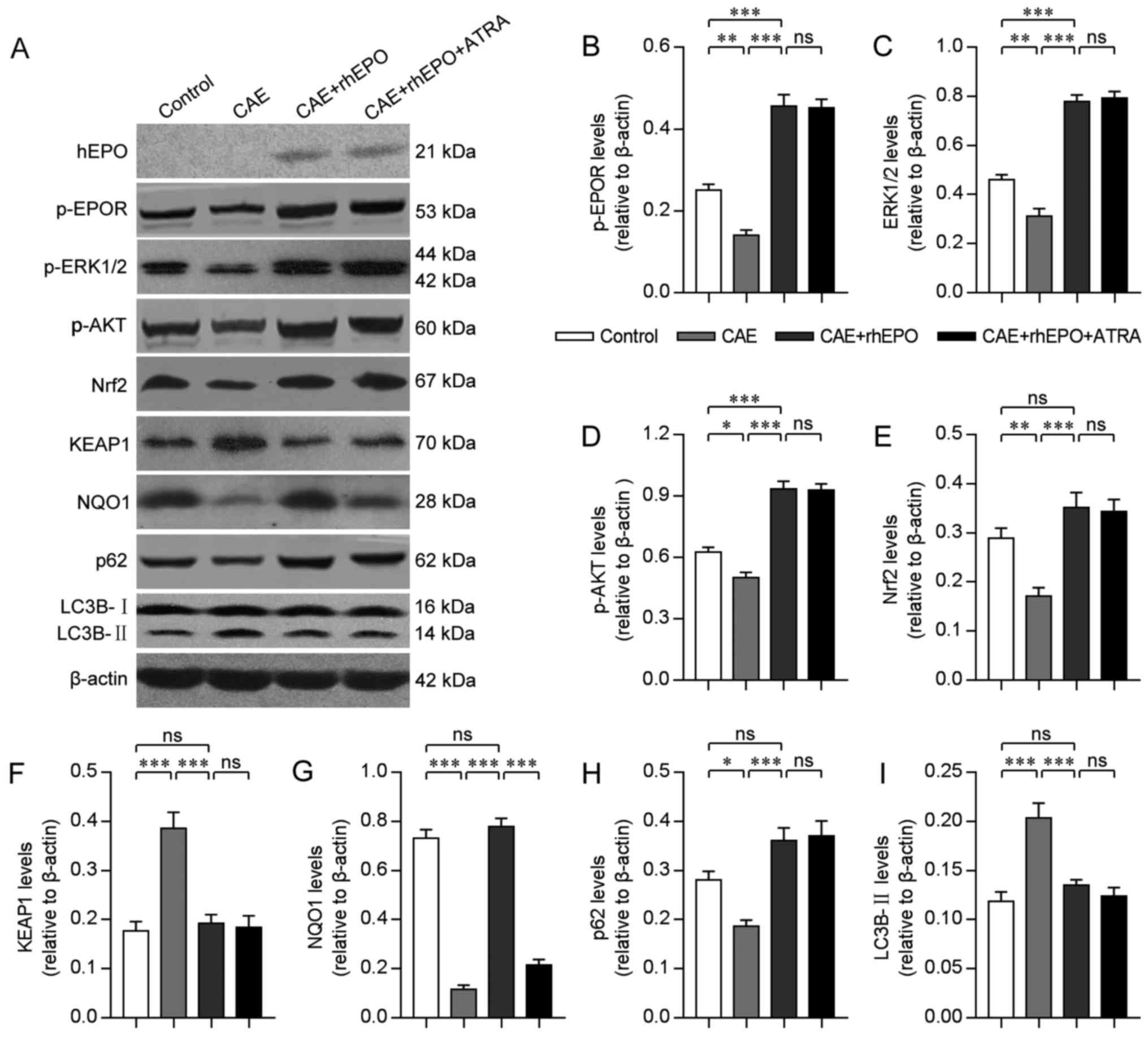|
1
|
Ron D and Barak S: Molecular mechanisms
underlying alcohol-drinking behaviours. Nat Rev Neurosci.
17:576–591. 2016. View Article : Google Scholar : PubMed/NCBI
|
|
2
|
Fama R and Sullivan EV: Methods of
association and dissociation for establishing selective
brain-behavior relations. Handb Clin Neurol. 125:175–181. 2014.
View Article : Google Scholar : PubMed/NCBI
|
|
3
|
Lembke A and Stanford M: Clinical
management of alcohol use disorders in the neurology clinic. Handb
Clin Neurol. 125:659–670. 2014. View Article : Google Scholar : PubMed/NCBI
|
|
4
|
Gupta S and Warner J: Alcohol-related
dementia: A 21st-century silent epidemic? Br J Psychiatry.
193:351–353. 2008. View Article : Google Scholar : PubMed/NCBI
|
|
5
|
Vetreno RP and Crews FT: Current
hypotheses on the mechanisms of alcoholism. Handb Clin Neurol.
125:477–497. 2014. View Article : Google Scholar : PubMed/NCBI
|
|
6
|
Connor JP, Haber PS and Hall WD: Alcohol
use disorders. Lancet. 387:988–998. 2016. View Article : Google Scholar : PubMed/NCBI
|
|
7
|
Sato K, Morimoto N, Kurata T, Mimoto T,
Miyazaki K, Ikeda Y and Abe K: Impaired response of hypoxic sensor
protein HIF-1α and its downstream proteins in the spinal motor
neurons of ALS model mice. Brain Res. 1473:55–62. 2012. View Article : Google Scholar : PubMed/NCBI
|
|
8
|
Koh S, Kim Y, Kim HY, Cho GW, Kim KS and
Kim SH: Recombinant human erythropoietin suppresses symptom onset
and progression of G93A-SOD1 mouse model of ALS by preventing motor
neuron death and inflammation. Eur J Neurosci. 25:1923–1930. 2007.
View Article : Google Scholar : PubMed/NCBI
|
|
9
|
Rodriguez Cruz Y, Strehaiano M, Rodriguez
Obaya T, Garcia Rodriguez JC and Maurice T: An intranasal
formulation of erythropoietin (Neuro-EPO) prevents memory deficits
and amyloid toxicity in the APPSwe transgenic mouse model of
Alzheimer's disease. J Alzheimers Dis. 55:231–248. 2017. View Article : Google Scholar : PubMed/NCBI
|
|
10
|
Cerri G, Montagna M, Madaschi L, Merli D,
Borroni P, Baldissera F and Gorio A: Erythropoietin effect on
sensorimotor recovery after contusive spinal cord injury: An
electrophysiological study in rats. Neuroscience. 219:290–301.
2012. View Article : Google Scholar : PubMed/NCBI
|
|
11
|
Hellewell SC, Yan EB, Alwis DS, Bye N and
Morganti-Kossmann MC: Erythropoietin improves motor and cognitive
deficit, axonal pathology, and neuroinflammation in a combined
model of diffuse traumatic brain injury and hypoxia, in association
with upregulation of the erythropoietin receptor. J
Neuroinflammation. 10:1562013. View Article : Google Scholar : PubMed/NCBI
|
|
12
|
Ma S, Chen J, Chen C, Wei N, Xu J, Yang G,
Wang N, Meng Y, Ren J and Xu Z: Erythropoietin rescues memory
impairment in a rat model of chronic cerebral hypoperfusion via the
EPO-R/JAK2/STAT5/PI3K/Akt/GSK-3β pathway. Mol Neurobiol.
55:3290–3299. 2018. View Article : Google Scholar : PubMed/NCBI
|
|
13
|
Chong ZZ, Shang YC, Mu Y, Cui S, Yao Q and
Maiese K: Targeting erythropoietin for chronic neurodegenerative
diseases. Expert Opin Ther Targets. 17:707–720. 2013. View Article : Google Scholar : PubMed/NCBI
|
|
14
|
Ma Q: Role of nrf2 in oxidative stress and
toxicity. Annu Rev Pharmacol Toxicol. 53:401–426. 2013. View Article : Google Scholar : PubMed/NCBI
|
|
15
|
Jang J, Wang Y, Lalli MA, Guzman E,
Godshalk SE, Zhou H and Kosik KS: Primary cilium-autophagy-Nrf2
(PAN) axis activation commits human embryonic stem cells to a
neuroectoderm fate. Cell. 165:410–420. 2016. View Article : Google Scholar : PubMed/NCBI
|
|
16
|
Yin XP, Zhou J, Wu D, Chen ZY and Bao B:
Effects of that ATRA inhibits Nrf2-ARE pathway on glial cells
activation after intracerebral hemorrhage. Int J Clin Exp Pathol.
8:10436–10443. 2015.PubMed/NCBI
|
|
17
|
Mildenberger J, Johansson I, Sergin I,
Kjobli E, Damas JK, Razani B, Flo TH and Bjorkoy G: N-3 PUFAs
induce inflammatory tolerance by formation of KEAP1-containing
SQSTM1/p62-bodies and activation of NFE2L2. Autophagy.
13:1664–1678. 2017. View Article : Google Scholar : PubMed/NCBI
|
|
18
|
Shen J, Wu Y, Xu J, Zhang J, Sinclair SH,
Yanoff M and Xu G, Li W and Xu G: ERK- and Akt-dependent
neuroprotection by erythropoietin (EPO) against glyoxal-AGEs via
modulation of Bcl-xL, Bax, and BAD. Invest Ophthalmol Vis Sci.
51:35–46. 2010. View Article : Google Scholar : PubMed/NCBI
|
|
19
|
Genc K, Egrilmez MY and Genc S:
Erythropoietin induces nuclear translocation of Nrf2 and heme
oxygenase-1 expression in SH-SY5Y cells. Cell Biochem Funct.
28:197–201. 2010. View
Article : Google Scholar : PubMed/NCBI
|
|
20
|
Wu H, Zhao J, Chen M, Wang H, Yao Q, Fan J
and Zhang M: The anti-aging effect of erythropoietin via the
ERK/Nrf2-ARE pathway in aging rats. J Mol Neurosci. 61:449–458.
2017. View Article : Google Scholar : PubMed/NCBI
|
|
21
|
Schattenberg JM and Czaja MJ: Regulation
of the effects of CYP2E1-induced oxidative stress by JNK signaling.
Redox Biol. 3:7–15. 2014. View Article : Google Scholar : PubMed/NCBI
|
|
22
|
Dekeyser GJ, Clary CR and Otis JS: Chronic
alcohol ingestion delays skeletal muscle regeneration following
injury. Regen Med Res. 1:22013. View Article : Google Scholar : PubMed/NCBI
|
|
23
|
Roman J: Chronic alcohol ingestion and
predisposition to lung ‘cirrhosis’. Alcohol Clin Exp Res.
38:312–315. 2014. View Article : Google Scholar : PubMed/NCBI
|
|
24
|
Holmes A, Fitzgerald PJ, Macpherson KP,
Debrouse L, Colacicco G, Flynn SM, Masneuf S, Pleil KE, Li C,
Marcinkiewcz CA, et al: Chronic alcohol remodels prefrontal neurons
and disrupts NMDAR-mediated fear extinction encoding. Nat Neurosci.
15:1359–1361. 2012. View Article : Google Scholar : PubMed/NCBI
|
|
25
|
Scafidi J, Hammond TR, Scafidi S, Ritter
J, Jablonska B, Roncal M, Szigeti-Buck K, Coman D, Huang Y,
McCarter RJ Jr, et al: Intranasal epidermal growth factor treatment
rescues neonatal brain injury. Nature. 506:230–234. 2014.
View Article : Google Scholar : PubMed/NCBI
|
|
26
|
Piao J, Major T, Auyeung G, Policarpio E,
Menon J, Droms L, Gutin P, Uryu K, Tchieu J, Soulet D and Tabar V:
Human embryonic stem cell-derived oligodendrocyte progenitors
remyelinate the brain and rescue behavioral deficits following
radiation. Cell Stem Cell. 16:198–210. 2015. View Article : Google Scholar : PubMed/NCBI
|
|
27
|
Tomassy GS, Berger DR, Chen H, Kasthuri N,
Hayworth KJ, Vercelli A, Seung HS, Lichtman JW and Arlotta P:
Distinct profiles of myelin distribution along single axons of
pyramidal neurons in the neocortex. Science. 344:319–324. 2014.
View Article : Google Scholar : PubMed/NCBI
|
|
28
|
Ahn JH, Lee TK, Park JH, Cho JH, Kim IH,
Lee JC, Hong S, Jeon YH, Kang IJ, Lee YJ, et al: Age-dependent
differences in myelin basic protein expression in the hippocampus
of young, adult and aged gerbils. Lab Anim Res. 33:237–243. 2017.
View Article : Google Scholar : PubMed/NCBI
|
|
29
|
Chen S, Mohajerani MH, Xie Y and Murphy
TH: Optogenetic analysis of neuronal excitability during global
ischemia reveals selective deficits in sensory processing following
reperfusion in mouse cortex. J Neurosci. 32:13510–13519. 2012.
View Article : Google Scholar : PubMed/NCBI
|
|
30
|
Perez EJ, Tapanes SA, Loris ZB, Balu DT,
Sick TJ, Coyle JT and Liebl DJ: Enhanced astrocytic d-serine
underlies synaptic damage after traumatic brain injury. J Clin
Invest. 127:3114–3125. 2017. View Article : Google Scholar : PubMed/NCBI
|
|
31
|
Hong S, Bejaglasser VF, Nfonoyim BM,
Frouin A, Li S, Ramakrishnan S, Merry K, Shi Q, Rosenthal A, Barres
BA, et al: Complement and microglia mediate early synapse loss in
Alzheimer mouse models. Science. 352:712–716. 2016. View Article : Google Scholar : PubMed/NCBI
|
|
32
|
Meng QT, Cao C, Wu Y, Liu HM, Li W, Sun Q,
Chen R, Xiao YG, Tang LH, Jiang Y, et al: Ischemic
post-conditioning attenuates acute lung injury induced by
intestinal ischemia-reperfusion in mice: Role of Nrf2. Lab Invest.
96:1087–1104. 2016. View Article : Google Scholar : PubMed/NCBI
|
|
33
|
Dale EA, Satriotomo I and Mitchell GS:
Cervical spinal erythropoietin induces phrenic motor facilitation
via extracellular signal-regulated protein kinase and Akt
signaling. J Neurosci. 32:5973–5983. 2012. View Article : Google Scholar : PubMed/NCBI
|
|
34
|
Dhuria SV, Hanson LR and Frey WH II:
Intranasal delivery to the central nervous system: Mechanisms and
experimental considerations. J Pharm Sci. 99:1654–1673. 2010.
View Article : Google Scholar : PubMed/NCBI
|
|
35
|
Noda NN and Inagaki F: Mechanisms of
autophagy. Annu Rev Biophys. 44:101–122. 2015. View Article : Google Scholar : PubMed/NCBI
|
|
36
|
Galluzzi L, Bravo-San Pedro JM, Blomgren K
and Kroemer G: Autophagy in acute brain injury. Nat Rev Neurosci.
17:467–484. 2016. View Article : Google Scholar : PubMed/NCBI
|


















